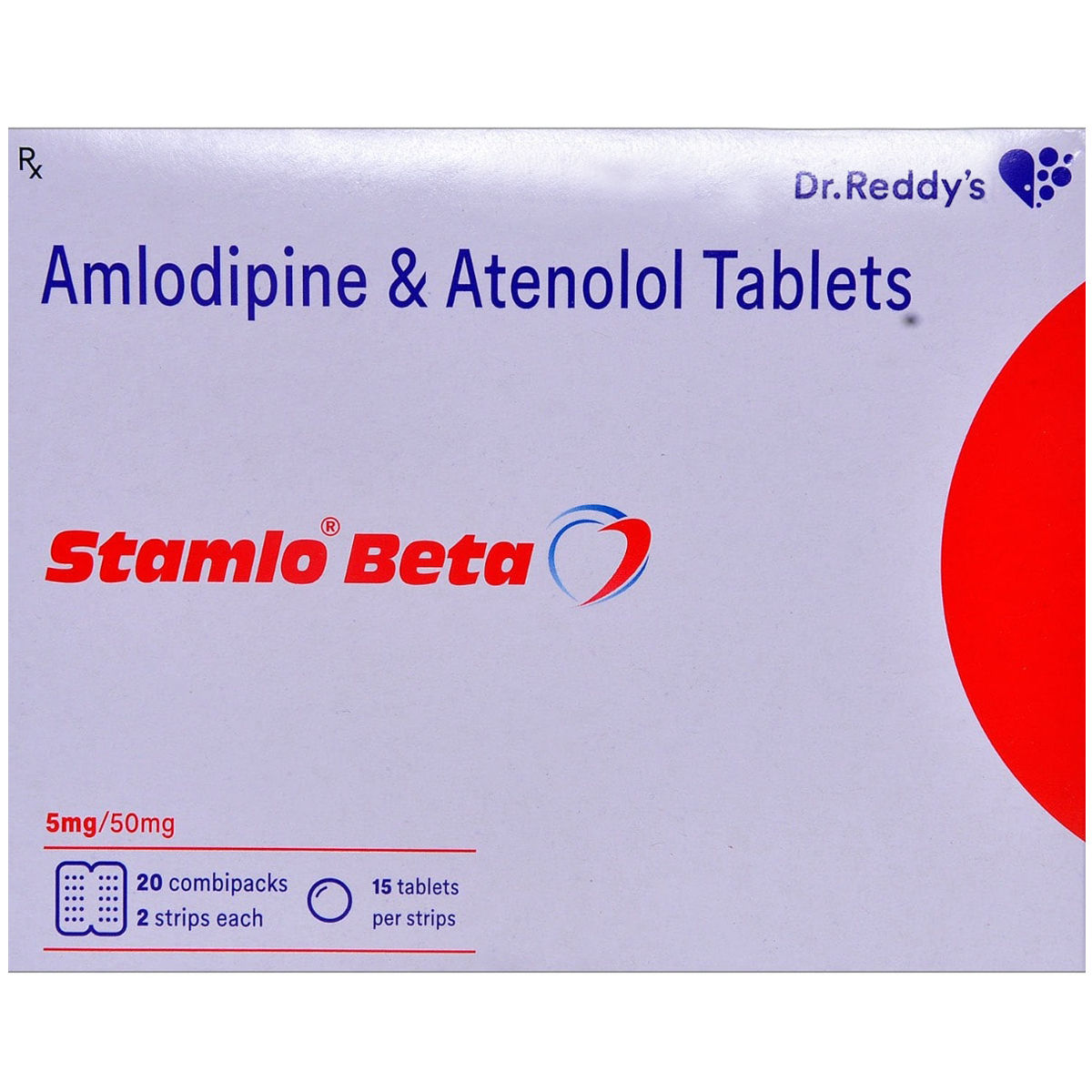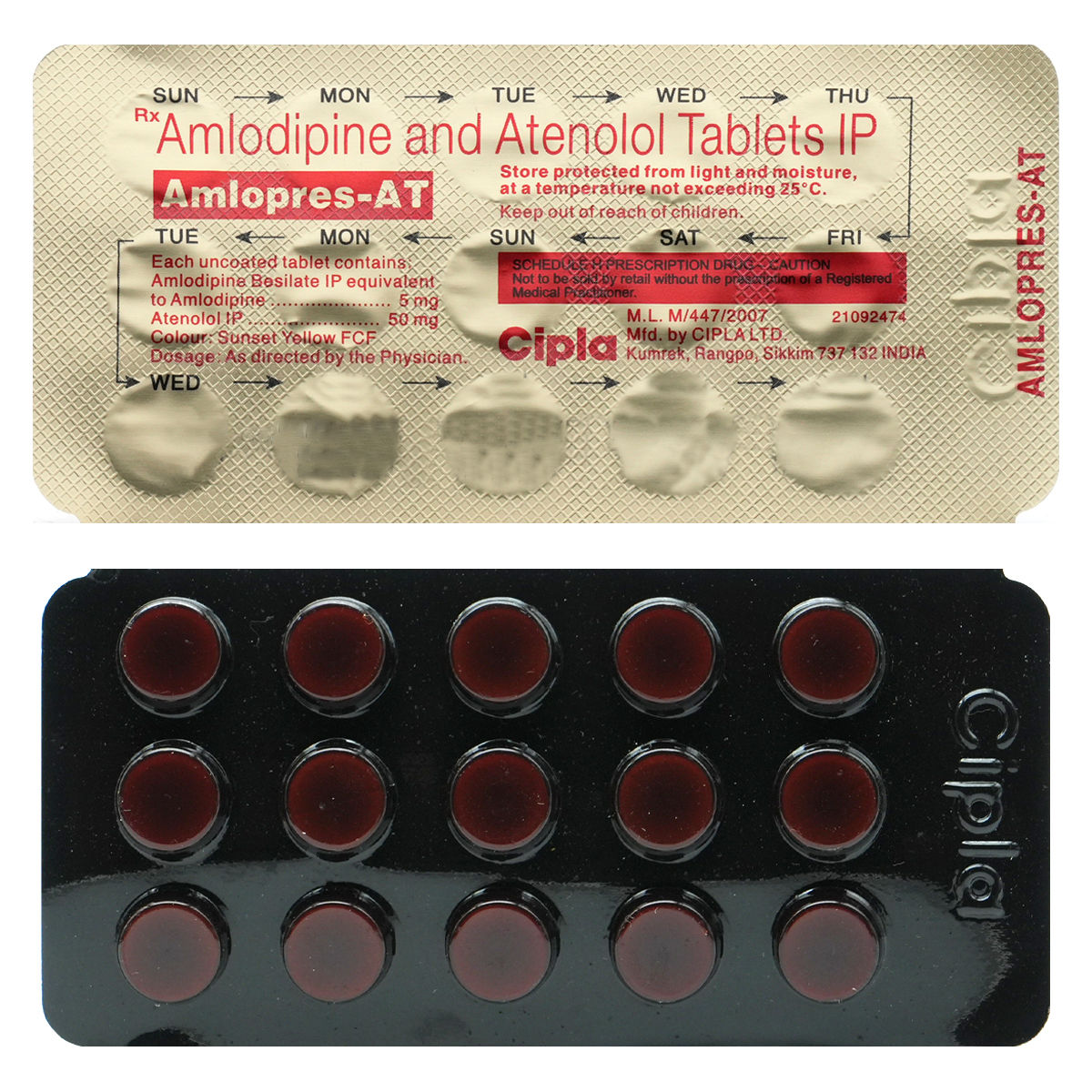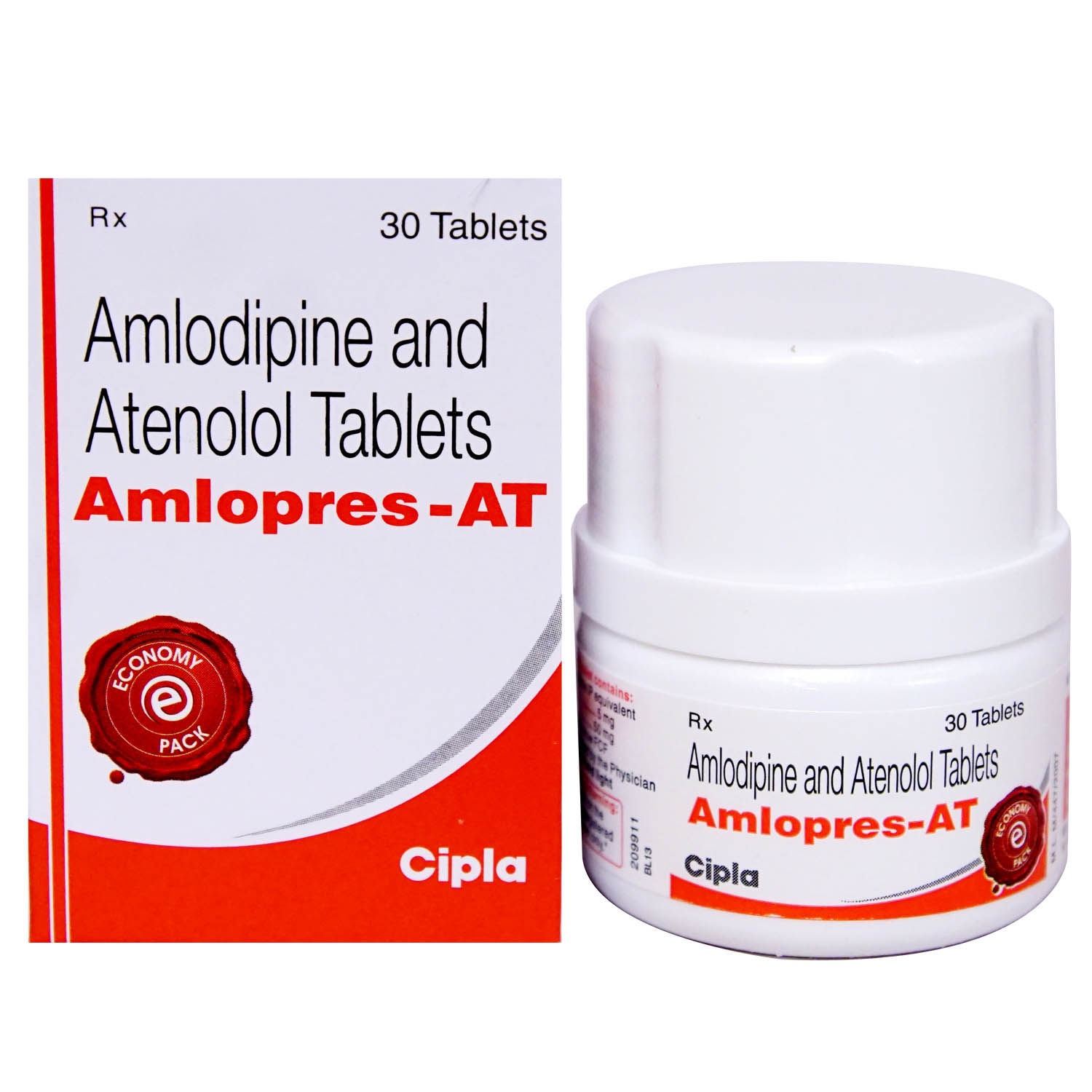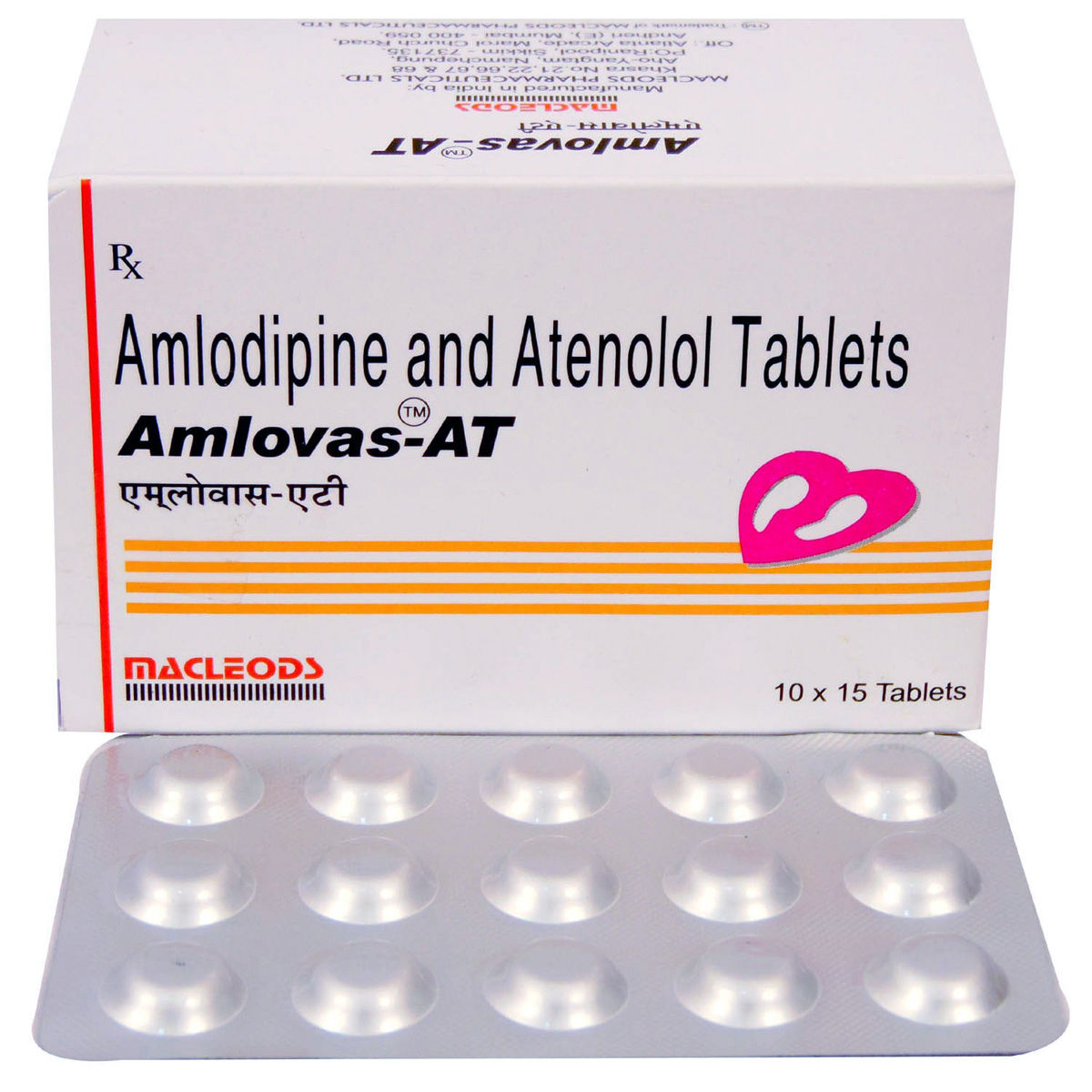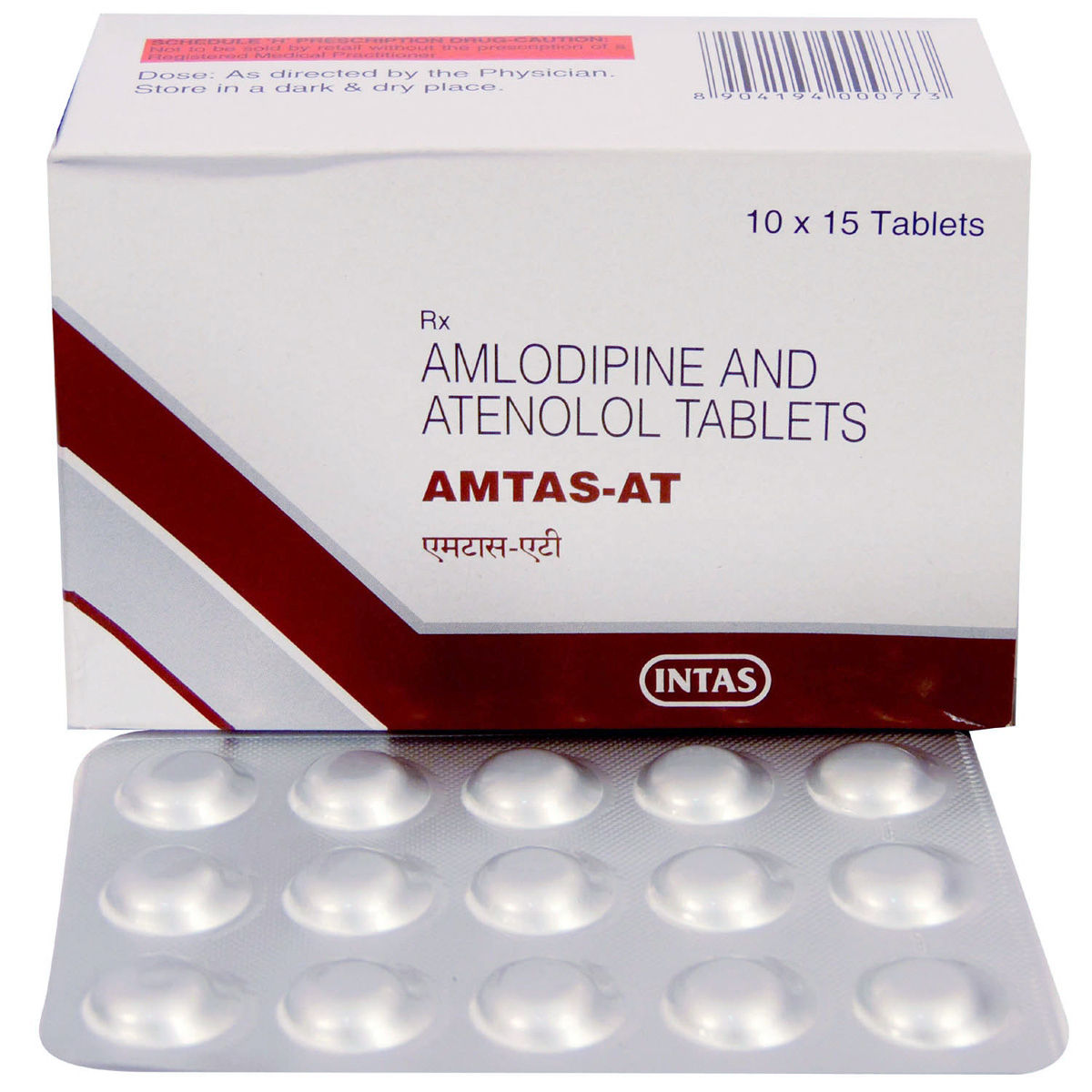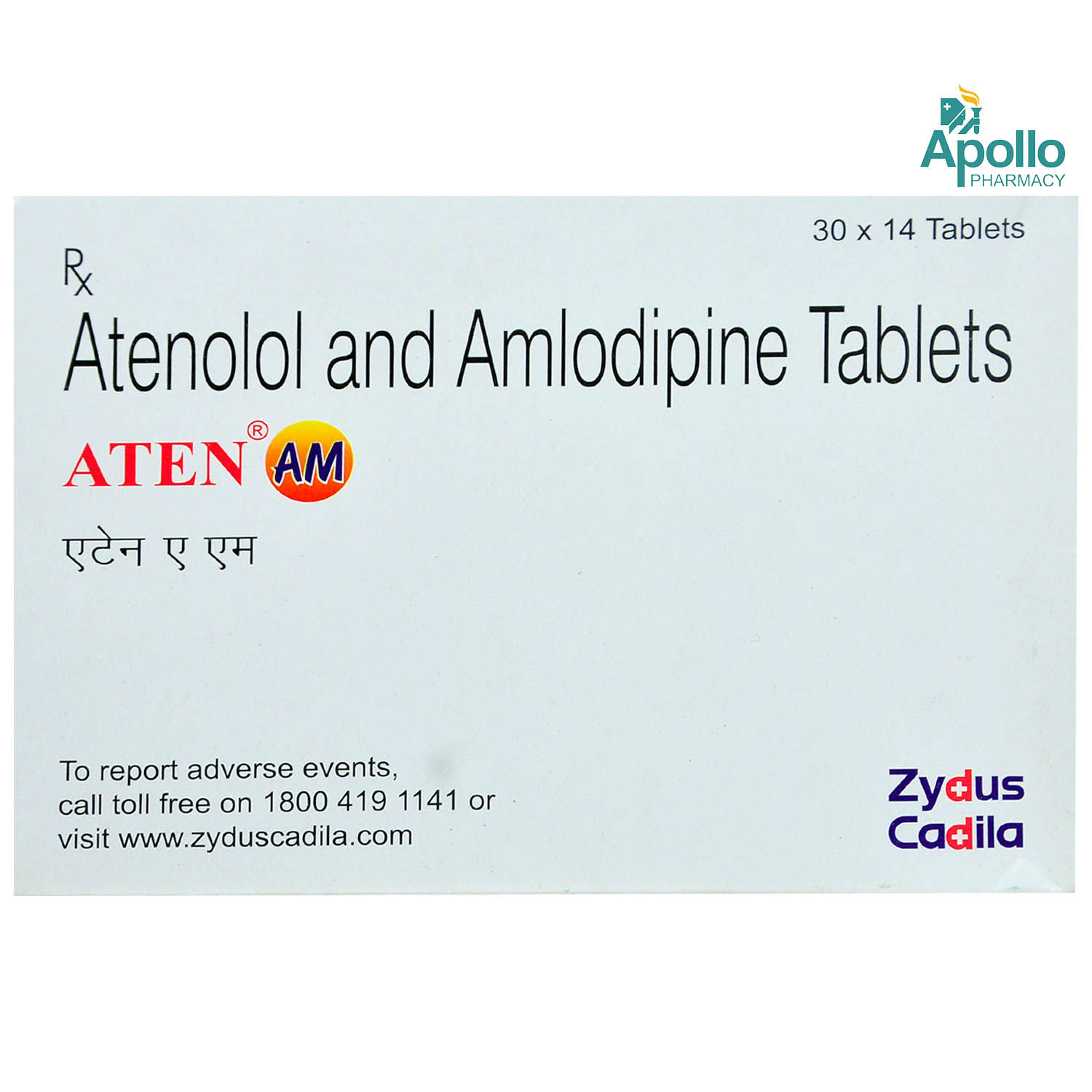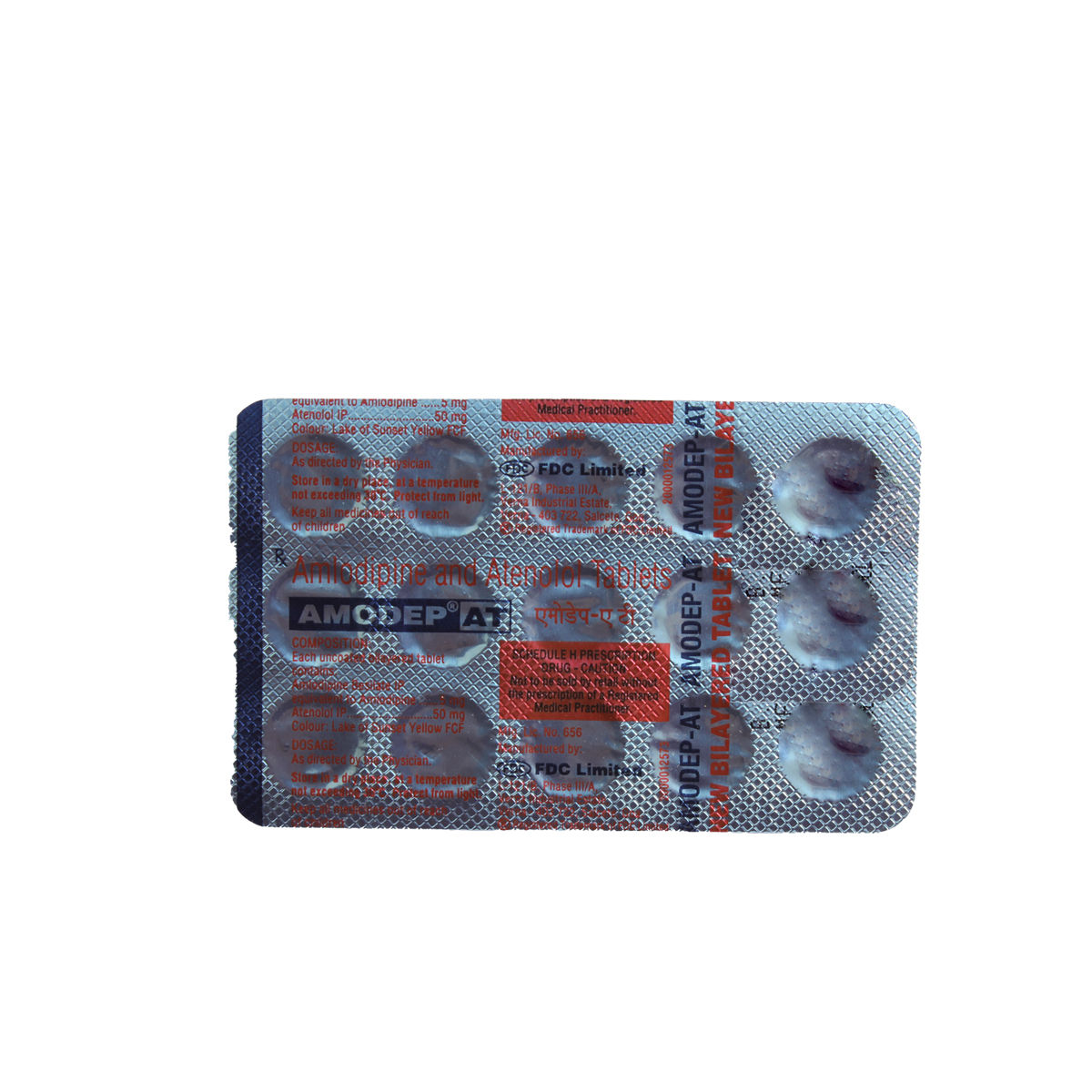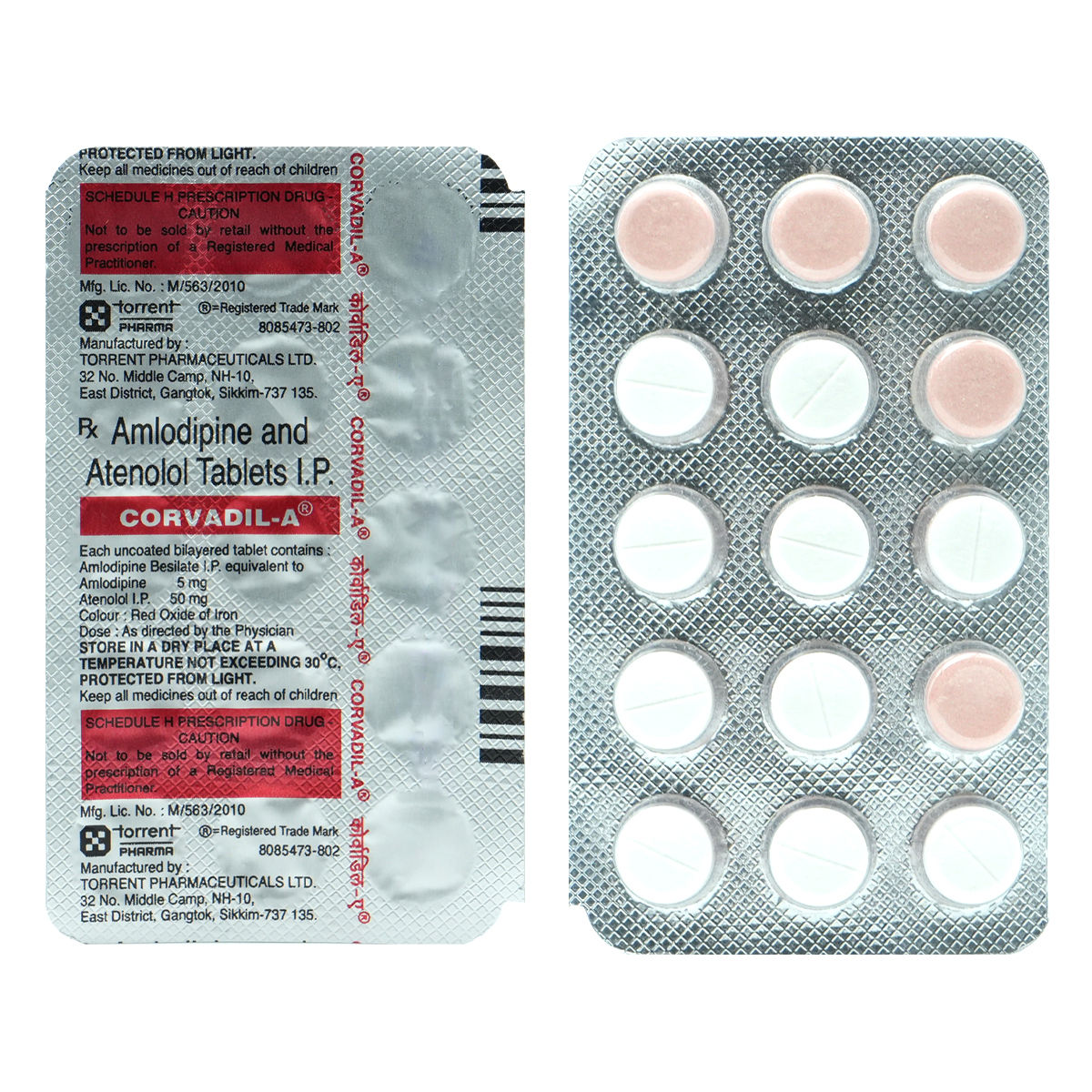AMSORT AT TABLET
₹40.5*
MRP ₹45
10% off
₹38.25*
MRP ₹45
15% CB
₹6.75 cashback(15%)
Free Delivery
With Circle membership
(Inclusive of all Taxes)
This offer price is valid on orders above ₹800. Apply coupon PHARMA10/PHARMA18 (excluding restricted items)
Know Your Delivery Time
Provide Delivery Location

Whats That

Secure Payment

India's Most Trusted Pharmacy

Genuine Products
Composition :
Manufacturer/Marketer :
Consume Type :
Return Policy :
Expires on or after :
About AMSORT AT TABLET
AMSORT AT TABLET is an anti-hypertensive medication that is used to treat hypertension (high blood pressure). Hypertension (high blood pressure) is a lifelong or chronic condition in which the blood pressure against the artery walls becomes too high. This can lead to damaged blood vessels, heart disease, stroke, kidney disease, and other problems.
AMSORT AT TABLET contains Amlodipine (a calcium channel blocker) and Atenolol (a beta-blocker). Amlodipine acts by relaxing and widening the constricted blood vessels. This ultimately reduces the heart's workload and makes the heart more efficient at pumping blood throughout the body. Atenolol works by blocking stress hormones like adrenaline and epinephrine, thereby slowing down the increased heart rate. Thus, it helps lower raised blood pressure, reducing the chances of heart attack or stroke in the future.
Take AMSORT AT TABLET as prescribed by your doctor. Depending upon your medical condition, you are advised to take AMSORT AT TABLET for as long as your doctor has prescribed it for you. The most common side effects of AMSORT AT TABLET are nausea, sleepiness, ankle swelling, headache, palpitations, low blood pressure, cold extremities, flushing (sense of warmth in the ears, face, neck, and trunk), slow heart rate, oedema (swelling), constipation, tiredness. They do not require medical attention and gradually resolve over time. However, if the side effects are persistent, reach out to your doctor.
Inform your doctor if you have had an allergic reaction to AMSORT AT TABLET, are pregnant or are planning to get pregnant, are breastfeeding, have liver disease, kidney disease, heart failure, a heart valve problem or a history of a heart attack. It is recommended to monitor your blood pressure if you have ever had a stroke or heart attack or are currently taking other blood pressure-lowering pills. It is advised to continue taking this drug and not stop taking it suddenly without consulting your doctor. It is advisable to drink plenty of fluids while taking this medicine. However, kidney patients should avoid taking plenty of fluids.
Uses of AMSORT AT TABLET
Medicinal Benefits
AMSORT AT TABLET is a combination drug containing 'anti-hypertensive' drugs containing Amlodipine (a calcium channel blocker) and Atenolol (a beta-blocker) primarily taken for the treatment of hypertension (high blood pressure). AMSORT AT TABLET reduces the heart's workload making the heart more efficient at pumping blood throughout the body and relaxing and widening the blood vessel. Thus, it collectively helps lower high blood pressure, reducing the chances of heart attack or stroke.
Side Effects of AMSORT AT TABLET
Nausea
Sleepiness
Ankle swelling
Headache
Palpitations
Cold extremities
Flushing (sense of warmth in the face, ears, neck, and trunk)
Slow heart rate
Oedema (swelling)
Constipation
Tiredness
Directions for Use
Storage
Drug Warnings
Inform your doctor if you have had an allergic reaction to AMSORT AT TABLET, are pregnant or are planning to get pregnant, are breastfeeding, have liver disease, kidney disease, heart failure, a heart valve problem, or have a history of a heart attack. And also disclose to your doctor all the prescription and over-the-counter medications you use, including vitamins, minerals, herbal products, and drugs other prescribed medications. You must closely monitor your blood pressure if you have ever had a stroke or heart attack or are currently taking other blood pressure-lowering pills. Do not start using a new medication without telling your doctor. And also, keep your doctor informed if you are taking anti-diabetic medicines along with AMSORT AT TABLET. AMSORT AT TABLET contains Atenolol, a category D pregnancy drug, so it should not be taken if you are pregnant, planning to become pregnant, or breastfeeding, as it can harm the baby. Lifestyle changes are beneficial in achieving optimum outcomes with AMSORT AT TABLET and keeping blood pressure under check. A low salt diet, daily physical activity, losing weight in the case of people who are obese, etc., are the mainstay of the treatment of hypertension.
Therapeutic Class
Drug-Drug Interactions
Drug-Food Interactions
Diet & Lifestyle Advise
Create a well-balanced and healthy diet that includes vegetables, fruits, whole grains, legumes, omega-3-rich foods, and lean protein sources.
Keep your weight under control with a BMI of 19.5-24.9.
Avoid chronic stress, as it can raise your blood pressure.
Spend time with your loved ones to cope with stress and practice mindfulness techniques.
Be mindful of salt; consume no more than 2,300 mg each day.
Limit or avoid alcohol consumption.
Quitting smoking is the best strategy to lower the risk of heart disease.
Habit Forming
How AMSORT AT TABLET Works
What if I have taken an overdose of AMSORT AT TABLET
Alcohol
Caution
You are recommended not to consume alcohol and AMSORT AT TABLET to avoid unpleasant side effects like lowering blood pressure (hypotension).
Pregnancy
Caution
AMSORT AT TABLET contains atenolol, which is a pregnancy category D drug. It is known to harm the baby if taken during pregnancy. So it is better to avoid intake of AMSORT AT TABLET in pregnant women in their second and third trimesters.
Breast Feeding
Caution
AMSORT AT TABLET can pass through the breast milk and harm the baby, so it should not be taken while breastfeeding.
Driving
Caution
Drive with caution. AMSORT AT TABLET usually causes drowsiness and affects driving ability.
Liver
Caution
AMSORT AT TABLET to be taken with caution, especially if you have had a history of liver disease. Your doctor will have to change the dosage depending on your medical condition and your reaction to treatment.
Kidney
Caution
AMSORT AT TABLET to be taken with caution, especially if you have had a history of liver disease. Your doctor will have to change the dosage depending on your medical condition and your reaction to treatment.
Children
Caution
AMSORT AT TABLET is not recommended for children below six years of age without a doctor's consent. The dose is to be adjusted and guided by a child specialist only for children above six years.
Country of origin
Manufacturer/Marketer address
Author Details
We provide you with authentic, trustworthy and relevant information
AMSORT AT TABLET Substitute

Stamlo Beta Tablet 15's
₹14.52per tabletAmlopres AT Tablet 15's
₹10.77per tabletAmlokind-AT 5 mg/50 mg Tablet 15's
by AYUR
₹3.21per tabletAmlong-A 5/50 Tablet 15's
₹9.54per tabletAmlopres-AT Tablet 30's
₹0.00per tablet
FAQs
Disclaimer
Product Substitutes








